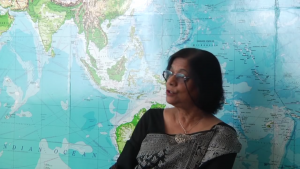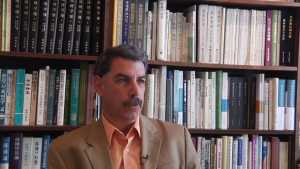Cooperative Management of Mekong River is Crucial for 70 Million People
Memo #32 – Cooperation is crucial to manage rivers that flow across national borders. States along the Mekong River – and their 70 million inhabitants – depend on the cooperation of their upstream neighbour, China.
Gender Issues in the Hindu Tradition
Memo #31 – Dr. Mandakranta Bose is a professor emerita at the Institute of Asian Research (IAR) at UBC. Her recent book, Women in the Hindu Tradition: Rules, Roles and Exceptions was the subject of an October interview in the Institute’s Behind the Book series.
Chinese State Investments in Canada: How to Reduce Uncertainty on Both Sides of the Pacific
Memo #30 – Canadians know that Chinese investment is coming. Since the summer of 2009, five Chinese state investments in the energy and mining sectors have totaled more than $10 billion (CDN).
When Cambodia’s Oil Begins to Flow: the Politics of Becoming a Petro-State
Memo #29 – Within two or three years Cambodia will likely export petroleum resources from offshore fields containing up to two billion barrels of oil and significant quantities of natural gas. This long anticipated event has stimulated discussion as to whether petroleum extraction will benefit the country. Concerned about the implications of oil for the evolution of the Cambodian polity, aid donors and NGOs have encouraged the ruling elite to learn from the mistakes of other resource-rich developing states afflicted by the so-called “resource curse”.
China’s Directed Public Receives Nobel Peace Prize
Memo #28 – The public realm in China is rich and varied, loud and commercialized, colourful and fascinating, but it is firmly under the direction of the Central Propaganda Department of the Chinese Communist Party (CCP). Liu Xiaobo’s (刘晓波) 2010 Nobel Peace Prize has shaken up the community of Chinese public intellectuals.
North Korean Leadership Succession: What Does the First Party Conference in 44 Years Tell Us?
Memo #27 – For the first time since 1966, North Korea held a Party Conference and elected new leadership for the Korean Worker’s Party (KWP). Although U.S. State Department spokesman Philip Crowley cynically called it, “the ultimate reality show,” the rare Party Conference reveals important clues about the character of leadership succession in North Korea.
Analyzing Falun Gong’s Effect on China since 1999
Memo #25 – More than a decade has elapsed since some 21,000 adherents of the spiritual movement known as Falun Gong gathered in peaceful protest outside Beijing’s Zhongnanhai complex. The demonstration, which came amid a rising tide of controversy over the group’s meaning and message, was China’s largest since the Tiananmen uprising of 1989. Like that incident, the Falun Gong demonstration was violently suppressed by the Chinese Communist Party (CCP).
Disputed Islands Crisis between Japan and China: Power Shift and Institutional Failure
Memo #24 – Japan and China just experienced one of their most intense confrontations in recent memory over the disputed Senkaku/Diaoyutai Islands. This is more than an oddly outdated conflict over Westphalian sovereignty in a period of intense globalization. It is about the shifting balance of power and the absence of bilateral and regional institutions to manage the shift.
Mike Chinoy speaks about China’s relationship with North Korea
Memo #23 – Mike Chinoy is the former Senior Asia Correspondent at CNN. Currently, he is a Senior Fellow at the U.S. – China Institute at the University of Southern California (USC). In this exclusive 4-part interview at the Institute of Asian Research at the University of British Columbia, Mr. Chinoy speaks about the divisions on North Korea among the Chinese leadership. Kim Jong Il has refused to adopt Chinese-style economic reform and has even pursued nuclear capability. But as the Chinese government fears instability in Northeast Asia, maintenance of the status quo in North Korea is important.



